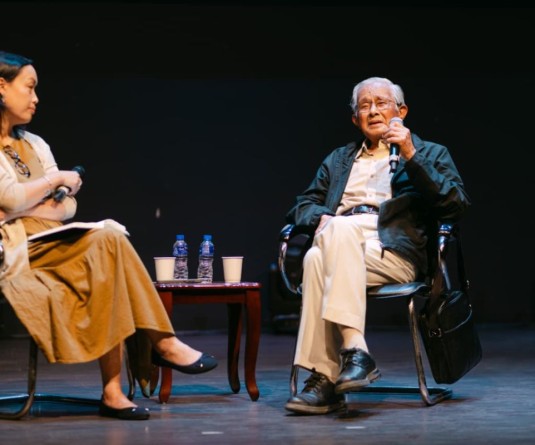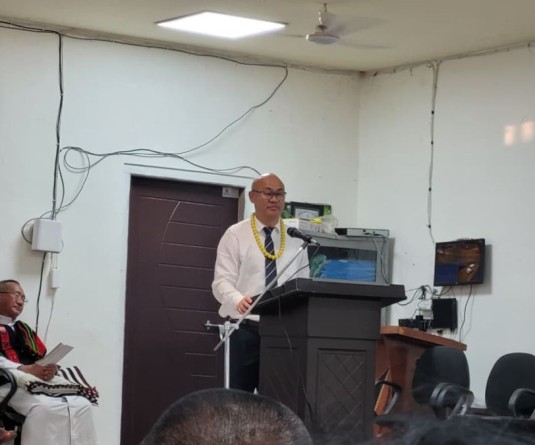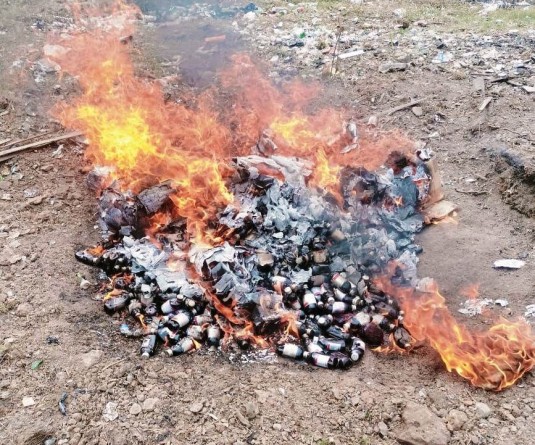
Zeliang said that once the modalities are formulated, then resumption of operations can commence this year itself. “But we need one legal advisor to look into aspects of Article 371 (A) because we (Nagas) need to be protected,” he said. Zeliang also suggested taking the service of an economist to work out the benefits of the state government and landowners once oil operations start.
During the sub-committee’s visit, public organizations, landowners and elders of Changpang and Tssori villages favoured early resumption of oil operations. The villagers’ demand for resumption of operations is evident as Changpang area has come to a standstill in terms of developmental activities, 17 years after ONGC pulled out of the area due to pressure from Naga groups.
Besides lack of infrastructure, electricity and water supply, there is no road connecting Changpang to other districts and state officials visiting the area travel via Assam. “Though the distance between Changpang and Setsupa under Mokokchung district is only 36kms and Changpang to Merapani about 18kms, there are no roads to connect them,” a village elder said.
However, given past lessons, the task of the sub-committee is not going to be an easy one. If successful, the modalities can be “uniformly applied” to other oil bearing districts like Mokokchung, Mon and Peren.
There are already apprehensions that instead of ushering equitable development and prosperity of the area, the rush for “black gold” in Changpang might turn out to be what economists call the “curse of oil.” As myriad parties and individuals including oil companies, government officials, politicians, landowners and villagers try to put their fingers in the pie, corruption, unhealthy influence and discord are foretold.
Even bitter differences between landowners as well as disagreement between the state government and landowners over sharing of oil royalty as witnessed in the past are likely to re-surface. There is also fear of heightening of border tension once oil operations start. As the wait gets longer, there are allegations that clandestine tapping of oil in some blocks under Nagaland is being carried out from the other side of the border.
For the moment, the public of Changpang area clearly not in favour of ONGC’s return to Changpang and have reportedly asked a private oil company to look into the spillage problem. On the other hand, the state Geology & Mining department invited ONGC for repair and capping of the oil wells.
The sub-committee felt that such unilateral actions without its knowledge would invite unnecessary complications. “The invitation to check spillage will involve crores of rupees in terms of bringing machinery, expertise, manpower and building roads. And no company will undertake such a work without eying for the ultimate contract for oil extraction,” a committee member said.
ONGC was also accused of flouting the agreement with the state government and duping the latter of its share of royalty in the past. It was alleged that instead of the agreement to extract 18 kilo litres of crude oil daily in initial stages, ONGC was covertly extracting oil way beyond the agreed amount.
From 1982 till suspension of operations in 1994, ONGC reportedly did not pay “a single paisa” to either the state government or landowners. “It was only in 2006 that ONGC made random calculations and said it owed the state government Rs. 33.84 crores in terms of royalty after extracting millions of tones of oil,” an inside source disclosed and commented that the government made a “big mistake” in accepting the royalty.
The government then rejected the initial demand of landowners for 20% of royalty as “Naga commission” and the landowners had to settle for Rs. 67.67 lakh, ie. 2% of the royalty.
Presently, the landowners are demanding payment in terms of barrels of oil drilled from their land. They also insist that the gathering station should be in Nagaland and not Assam. Out of the 31 oil wells in Changpang and Tssori covering an area of 12 sq. km,
21 are oil-bearing, two-gas producing, five abandoned while three oil wells are incomplete.






